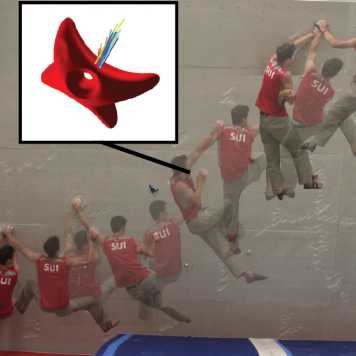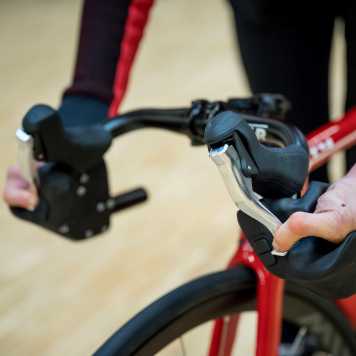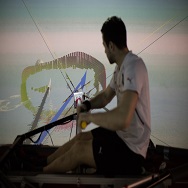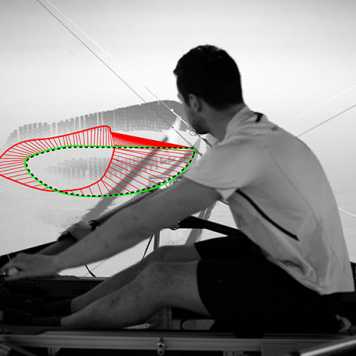Sports Engineering
The combination of knowledge of different engineering disciplines with an understanding of human movement sciences enables new training strategies and a comprehensive analysis of sports performance. Thus, we elaborate (i) robot-aided trainings and multimodal feedback strategies addressing different skill levels, and develop (ii) sports-specific measurement technology for performance analysis.
Contact
Dr. Peter WolfWe assess human performance and motor learning in real-life sport tasks by in-house developed sensor technologies that enable sport-specific measurements of interaction forces and kinematics. We have established concurrent auditory, haptic, and visual feedback strategies and work on fully automated adaptation of them as well as of their automated switching. Another focus is on technology-based training equipment for competitive and amateur athletes.
Subprojects
Performance Analysis in Climbing

Climbing is a fast growing competitive and recreational sport, attracting athletes of different age groups and with different aims who train regularly in an increasing number of indoor climbing gyms. Despite the popularity of climbing, research on biomechanical aspects of climbing such as the contact forces is still in its infancy. In addition, recent developments in markerless tracking hold the potential to capture characteristics of successful climbing, even during competitions. This opens up completely new possibilities for performance analysis, not only for coaches but also for media coverage of the sport.
Research and Development with and for Para-Athletes

Sport is a wonderful way to feel your body and interact with other people. Sport creates new encounters, experiences, trust and cohesion. Everyone should be able to experience this. Para-sport broadens the spectrum of sport in this way and enables people with different abilities to participate and gain recognition. Together with para-athletes, we research their biomechanics and develop means that improve their performance.
Past Subprojects
Augmented Multiphase Learning

In this project, we investigate the effectiveness of augmented feedback modalities and modulation of task conditions to support multiphase learning of real-life, complex tasks. Effective methods for the motor learning of novice and skilled humans are studied for various classes of tasks. For this project, different robots are used to render manifold task characteristics and conditions. When appropriate feedback modalities and designs are found for the successful learning for distinct skill levels and task categories, trainees can be supported from novice to an expert level along the multiphase learning process of a complex movement.
Virtual Trainer

In this project, we develop a virtual trainer to enhance robot-assisted human motor learning. Robot-assisted training enables a lot of different training conditions and settings in task rendering and augmented feedbacks. Additionally, in robot-assisted training, a lot of kinematic or kinetic data is available to evaluate and analyze performance and training efficiency. Within the virtual trainer project we are designing and testing real-time capable concepts to close the gap from automated evaluation of training to reasoned automated selection or configuration of a training condition.